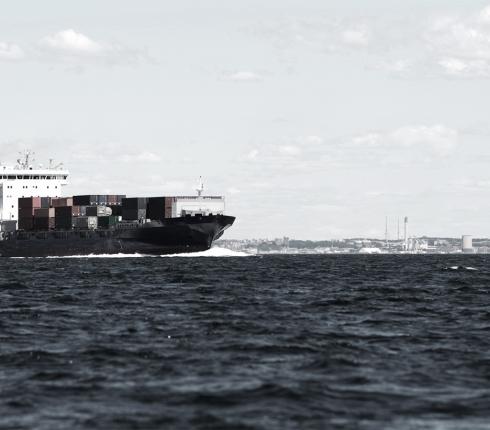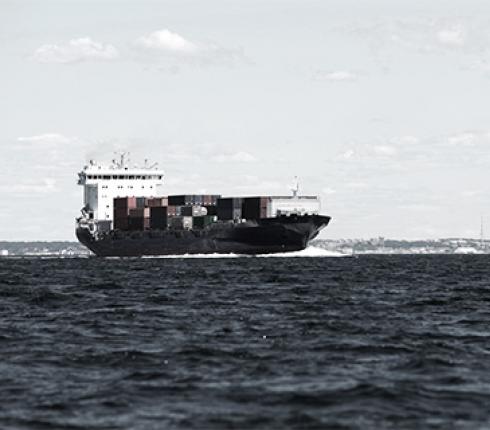The Rapidsped judgment: European Court of Justice finds that daily allowances for posted workers can be considered part of the minimum wage
On 8 July 2021, the CJEU delivered its judgment in the Rapidsped case (C-428/19) following a request for a preliminary ruling on the interpretation of Posted Workers Directive. The questions before the European Court of Justice included whether the Posted Workers Directive applies to international freight transport and whether daily allowances should be considered part of the drivers’ wages.

BACKGROUND
Three lorry drivers (OL and others) were employed by the Hungarian company Rapidsped, where they partly carried out national transport. However, the drivers’ primary task was to carry out international freight transport assignments outside Hungary. During their term of employment, drivers were mainly posted to France. At the start of each posting, the drivers received a statement from Rapidsped stating that drivers would receive an hourly wage of EUR 10.40 – an hourly wage above the French minimum wage in the transport sector (EUR 9.76 per hour). However, in 2018, the drivers were paid a salary equivalent to EUR 3.24 per hour.
Therefore, the drivers brought an action against their employer in Hungary for Rapidsped to pay drivers an hourly wage equal to the French minimum wage.
Rapidsped also paid daily allowances to the drivers, and the amount of these allowances varied according to the duration of the postings. According to Rapidsped, the daily allowances formed a part of the drivers' wages, so the difference between the French minimum wage (EUR 9.76 per hour) and the hourly wage actually received by drivers in 2018 (EUR 3.24 per hour) was covered by the daily allowances.
The questions referred to the CJEU included:
- Whether the Posted Workers Directive (Directive 96/71) applies to international freight transport
- Whether the drivers could bring an action for the payment of French minimum wage before a Hungarian court
- Whether the daily allowances could be considered as part of the drivers' wages
THE JUDGMENT OF THE COURT OF JUSTICE OF THE EUROPEAN UNION
The CJEU ruled, first, that the Posted Workers Directive applies to the provision of cross-border services in the road transport sector (paragraphs 34 to 36). In this context, the CJEU referred to its judgment in Case C-815/18, where it had already established that the Posted Workers Directive applies in the road transport sector.
The CJEU then ruled that the drivers concerned could bring an action against their Hungarian employer before a Hungarian court. Thus, the drivers could bring an action against Rapidsped before a Hungarian court for payment of a minimum French wage for the work they had carried out in France.
The CJEU then ruled on whether the daily allowances paid could be regarded as part of the drivers' wages. If that was not the case, Rapidsped's payment of wage would not have been in accordance with the rules on posting.
The CJEU considered that a distinction should be made between (1) daily allowances which constitute a benefit specifically related to the posting, e.g., where the amount of the daily allowances depends on the duration of the posting, and (2) daily allowances, which are more likely to be considered reimbursement for expenses actually incurred in connection with the posting, such as travel, board and lodging costs.
Only in the former cases where the daily allowances are determined based on the duration of the posting of the drivers do they form a part of the minimum wage (Article3(7) of the Posted Workers Directive).
The CJEU observed that permanent and progressive daily allowances appear to compensate for the disadvantages resulting from the fact that the driver is removed from their usual environment when posted (paragraph 50). These types of daily allowances must not only be regarded as reimbursement for actual expenses incurred but must be regarded as part of the drivers' wages.
In Rapidsped, the European Court of Justice left it to the national court to assess how the daily allowances should be categorized and whether they should be included in the drivers' minimum wage (under Article 3(7)).
NJORD'S COMMENTS
The Rapidsped judgment has established, in accordance with the previous case-law, that the Posted Workers Directive applies to international road transport so that drivers are entitled to a certain minimum wage when driving outside their usual work area.
The judgment also states when daily allowances can be considered a part of the wage and when they cannot. If you pay daily allowances (as an employer) or receive daily allowances (as an employee), you should be aware of whether the daily allowances should be included in the wage or whether they are paid only in connection with expenses actually incurred. If the latter is the case and the daily allowances are nevertheless included as wages, it must be ensured that the wages paid still comply with the Posted Workers Directive's rules on minimum wages.
The posting rules will be subject to other special rules when Directive 2020/1057, as part of the Mobility Package, is implemented in Denmark by 2 February 2022. NJORD Law Firm can provide advice in relation to both the current posting rules and the changes resulting from the Mobility Package.































